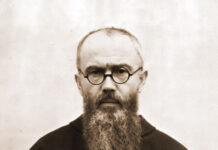(A few years ago, we published the following letter, which was sent to Catholic Insight in response to my brief posting on the letter of the Bishops of Atlantic Canada, in their own tragically inadequate response to the sacraments and the suicide-euthanasia law, euphemistically termed ‘medical assistance in dying’. Ms. Ackford back then kindly agreed to have her letter posted in full, which helps put what this all means into a real, living context. Now, my own mother is journeying towards eternity soon, as I watch vigil by her palliative care bedside, here in her own home. Accompanying people towards the end of their earthly journey, especially those whom we love most, is difficult, the path of the Cross of Christ, without which there is no sanctity. I leaI presume by now that Ms. Ackford’s mother may well have gone to her eternal reward, as my own is soon to do, so please do keep us all in prayer, in that unity of the Mystical Body, especially at this time. Ed.).
I just read your most recent editorial in which you mention the article by RR. Reno in First Things. I have not yet had the opportunity to read the bishops’ document, but I did read the Reno article. I find it deeply disturbing that the idea of a spiritual ‘accompaniment’ in death has the potential to be watered down to a feel good, sentimentalized pastoral concept.
I personally have been ‘accompanying’ my mother through an incredibly difficult year of cancer diagnosis, treatment, hospitalization, surgery and palliative care. As I have walked through this with my mother in the midst of the changing Canadian law and landscape, I think there is reason for us all to be very afraid. My own experience with my mother has taught me how crucial it is for people to have a strong advocate as they navigate the medical system. It strikes me as being entirely too simple for medical people, particularly in hospitals, to simply tacitly allow people (especially those who are older and weaker) to slip away by avoiding doing some of the more difficult rehabilitative treatment. I had to advocate for rehabilitative treatment when my mother was hospitalized after chemo-radiation with extreme fatigue and weakness caused by blood clots in her lungs. Though the physicians seemed to be aiming towards rehabilitation, the practical nursing staff were often too busy to aid in the rehabilitation process and were often far too willing to resort to procedures and standards of care which were impediments to rehabilitation, simply because it was easier and more ‘doable’ for them in the moment. We had to strongly advocate for services and care to allow her to return home and regain strength. Notwithstanding some very excellent care that was present at times, the meaning and value of an elderly person struggling with cancer seemed to be viewed somewhat differently than that of a younger, more evidently ‘productive’ person. The fact that I felt at times, perhaps incorrectly, that the spectre of assisted suicide hovered over us as a possibility was unsettling and made me feel at times ‘on-guard’ and slightly uneasy in the face of certain medical practitioners.
However, in the midst of what seemed a never ending battle, my mother rested in her faith and found hope within herself to move forward (even knowing that her battle with cancer might not ultimately be won, at least in the way she might choose). Through faith and trust in God, she was able to embrace a few months of improved health before being faced with a failed surgery in which the doctors discovered that the cancer had spread to different areas in her body. As the progress she had made steadily deteriorated, the one thing that has remained stable and unchanging has been her deep trust and faith in God’s love and faithfulness.
This walk has been painful. It has taxed our endurance. Yet, through it all, she thanks God every day and night for His graces and gifts. Given her pain, given the apparent hopelessness of the situation and the spectre of even greater pain and suffering before death, she remains faithful and trusting. Last week she finally chose to end the palliative radiation that they were offering. We spoke about it and I wanted to be sure she truly understood what this meant and that there was the possibility that foregoing this palliative treatment could result in a significant worsening of her condition before God chooses to take her.
Later as she was speaking about her decision with someone else, she made the most incredible act of faith and surrender by saying that she was placing herself in God’s hands, no matter what that meant and she would accept whatever came, even if that was more pain and suffering, knowing that God will be taking care of her and providing for her. She was simply placing herself in God’s hands and not so much giving up but giving herself over, completely, to His Divine mercy and care.
It occurs to me now, as I write and reflect on this, how absolutely courageous and heroic in the deepest spiritual sense this is. It also becomes clear that her faith speaks volumes to all those around her even in her extreme physical weakness because God is truly here.
Going back to the Bishops’ document, I would say that I am learning that to ‘accompany’ someone through the end of life to death is beyond hard. It is painful and it is deeply frightening to watch and anticipate the extreme suffering of someone you love. It is agonizing to not have control over the future and over the when, where and how of death. . . and yet, accompanying someone through life unto death, is an opportunity to find courage in the face of absolute weakness, hope in the midst of what seems by all accounts to be hopeless; faith, in the midst of the fearful and unknown; the Real in the midst of a world that obscures the reality of Christ.
What it is not, is sentimental, mushy words and false empathy. It requires courage, bravery, perseverance, strength, faith and true character to face ‘accompanying’ someone on this journey. It requires facing one’s own poverty of spirit, weakness, failings, and fears and surrendering oneself to a God who strengthens and gives grace in the midst of weakness.
For spiritual leaders who are ‘accompanying’ people on this journey, the challenge is not to drown in false empathy and sentimentality that lacks fundamental Truth, but to overcome one’s weaker self through the grace of God and to choose to walk an heroic and courageous path. This heroism and fundamental courage is found in the unlikely Reality of the Cross of Christ. Embodying this true heroism and courage means embracing the Cross of Christ and being willing to ‘accompany’ Him. I think of St. John Paul the Great, who offered an incredible example of this heroic courage and willingness to embrace the ultimate Reality of the Cross which is manifest in pain, suffering and weakness. Even more importantly however, is to live in the reality that the journey doesn’t end at the Cross . . . rather, it begins there as the suffering, pain and death is transformed into life giving, unconditional love and resurrection with Christ.
Obviously this is deeply personal to me at this point in time, but I am learning first-hand what this means. How incredibly tragic to water down this call to journey with those who are dying . . . to journey with Christ to the Cross. It is tragic not only for what is lost to those who are struggling with coming to the end of life but for what is lost in the souls of those spiritual leaders who seek to ‘accompany’ the dying anywhere but to the Cross of Christ and to the light and hope that ultimately brings.
Sorry for the rambling thoughts but this post struck a chord, as have many past posts that have reflected on this situation in Canadian law. The words of your final paragraph unexpectedly provided encouragement for me as I reflect on the need for deep hope and faith in God’s provision not only as we await the coming of our Saviour at Christmas but as I face these final days with my mother. “Rest in the duty of the moment, take care of what God has given you, and trust Him at all times” – meaningful words with which to move forward.
In His Peace,
Jennifer












